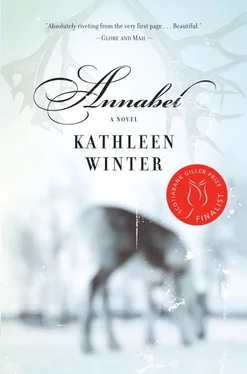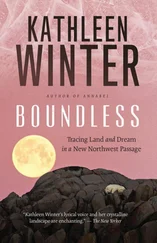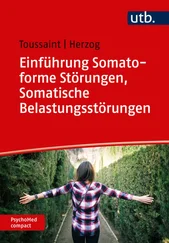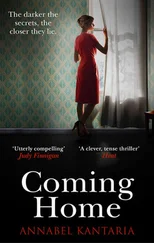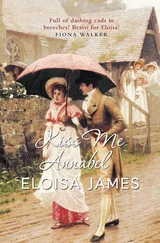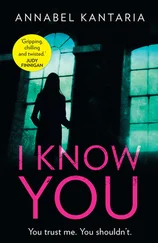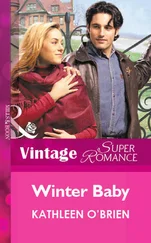“Mom?”
“I can’t — what?”
“Do you remember anything else?”
“Your dad might hear.”
“Dad’s taking his Ski-Doo apart. We’ve got lots of time.”
“I thought he was packing.”
“I heard him laying out his wrenches.” Wayne’s ear was attuned to the clinking of metal on cement, and to all the sounds Treadway made inside and outside the house.
“When you were in kindergarten you cut a tarantula out of a National Geographic . Its legs were as slender as my hair. The teacher said no other boy could do that.”
Attuned though his hearing was, there was one thing Wayne did not hear Treadway do, one thing his father had vowed to do before his months on the trapline. It happened while Wayne was in school and Jacinta was buying sugar cubes, which Treadway preferred to loose sugar. Cubes cost more per weight, and it was not like Treadway to prefer a less economical choice. She had asked him, long ago, “Why do you want me to buy cubes?”
“I like cubes,” he said. “I like the way they fit together in the box. One cube is exactly the right amount in my tea, every time. You can’t spill them. If a rat puts a hole in a bag of sugar, you lose whatever spills out. Humidity will ruin a bag of sugar, but to ruin cubes you’d have to drop them in the river.” He had gone on like this, outlining the advantages of sugar cubes, astonishing Jacinta with his seriousness regarding such a small thing.
So Jacinta was buying sugar cubes, and this gave Treadway a chance to look at the phone book, which was difficult for him to do. Treadway could read Voltaire. He could wait eight hours in silence for a lynx and read the tracks of a dozen duck species and know each by name. He could find them in Roger Tory Peterson’s guidebook, and had read the journals of James Audubon, but the phone book was a torment to him, as were government documents, tax forms, insurance policies, bank statements, and telephone or hydro bills, all of which Jacinta dealt with. She looked things up for him in the phone book when she was at home, but he wanted to do this thing without anyone knowing.
He phoned the library in Goose Bay first. They told him to phone the A. C. Hunter Library in St. John’s, and A. C. Hunter said his best bet was to call Memorial University. By the time he found a woman named Augusta Furey in the office of the dean of music, almost an hour had gone by, and he was worn out as he wrote down the New York address she gave him out of the Albert J. Breton Catalogue of Sheet Music for Soprano, Alto, Tenor, and Bass Voices.
“The price might have changed,” she warned him. “This is last year’s catalogue. We keep asking them to send us the new one as soon as it comes out. But we can’t control everything.”
Treadway wrote Albert J. Breton a letter ordering a copy of “Cantique de Jean Racine” by Gabriel Fauré. He phoned the Croydon Harbour post office and got the number of Gerald and Ann Michelin’s mailbox.
Over the next week Treadway cleaned and reassembled his Ski-Doo. He filled his sled box and his reading case. He packed his Collected Works of Robert Frost .
“Sometimes,” Jacinta told Wayne, “you looked at me like you knew.”
“But I didn’t!”
“I imagined you did. People think all kinds of things when they are alone with a secret. They think what they want to think. Maybe I imagined the whole look.”
Treadway wrapped fourteen extra pounds of flour and cornmeal, and he hoped the woods would be lovely, dark and deep.
There was a tiny travel agency on the main road in Goose Bay. Thomasina thought of it as a hidden gate. The agent, Miriam Penashue, had spent all her summers in the bush near the Quebec border and had not finished high school. Miriam had not even finished grade six, and she had no plans of ever going to school again until she found out that if you took the travel agent course at the community college in Goose Bay, the government would pay for you to see six travel destinations. Once she had seen them, Miriam Penashue was no ordinary travel agent. She did not put up posters of Dominican Republic resorts or offer deals to Disney World. Her shop had one handbill on the door; Miriam Penashue had made it herself. It read, COME IN AND TALK TO MIRIAM PENASHUE ABOUT WHERE YOU WANT TO GO.
After the Labrador East School Board sent Thomasina its letter of suspension, something about Miriam Penashue’s sign appeared so unpretentious and so promising, she went in. She was carrying a bag from Happy Valley Northmart with six grapefruit in it that she wished were better grapefruit. They would be all right once she had sliced their membranes down to the drupes, but in their trip from California a layer of air had developed between the rinds and the fruit. When you have received a letter that says you have not acted in the best interests of the children you are teaching, it is hard not to feel ashamed. Thomasina felt ashamed and angry at the same time: ashamed because she should have done things differently. She could have been more discreet, more patient, instead of getting all righteous and hauling Wayne to the hospital in a way that attracted the attention of people who had no sympathy. People like Mr. Henry, who had caught wind of the hospital trip and had made a point of inquiring about it at the school office. The principal herself, Victoria Huskins, with her white pants and her intercom.
“There are two reasons I have no choice but to have you disciplined,” Victoria Huskins had said. “Taking a child off school property without adherence to a single one of the regulations we have in place. And lesser, but pretty important to me as someone who has to keep a semblance of order here, publicly ridiculing my reprimand of the child who wilfully left poo on the washroom floor. Filth. You should know better, Thomasina Baikie. For the children’s sake. People are going to think we don’t care about the children. I can’t have that at my school.”
Shame was what Thomasina felt the day she noticed Miriam Penashue’s handbill. It was undeserved shame, but it did its job nevertheless. It dampened her heart, then burnt its edges so she was left with a mess of charcoal and saddened fire. From Miriam Penashue’s handbill came a puff of freedom: COME IN AND TALK TO MIRIAM PENASHUE ABOUT WHERE YOU WANT TO GO.
Miriam Penashue was halfway between the ages of Thomasina and her grade seven students. She wore her hair in a bob and kept bubblegum in her mouth and had a coffee mug that said GRENFELL HUSKIES. She hired no one and her office was painted with turquoise paint left over from the fish plant where her boyfriend worked. The thing Thomasina liked about her was that she really did want to talk to you about where you wanted to go, and not where she wanted to send you. It appeared that she did not care whether or not she sold you a ticket to anything.
“Some places,” Thomasina said, “you go and you just feel like sighing and sitting down in an armchair like the one you’ve put right here.”
“Watch out for the spring at the back.”
“Its lumps are in the right places.”
“How are you doing?”
“You’ve probably heard.”
“When a hundred kids are going around with the news, you don’t need a story in the Labradorian . ’Specially if it’s about poo. And what’s wrong with taking a kid to hospital? Didn’t he have appendicitis? Maybe it would’ve ruptured if you hadn’t brought him in. Maybe you saved his life.”
“I should have done it differently. Victoria Huskins is not a well woman.”
“None of the parents blame you one little bit. They should go down to that school board and have you reinstated. But they aren’t going to. They talk about it but they won’t do it. What kind of a trip do you want to take?”
Читать дальше
